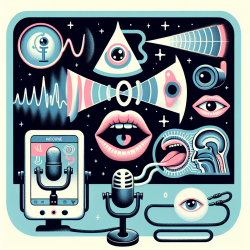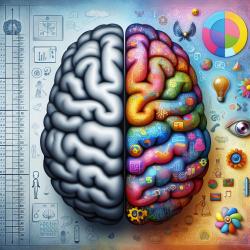The article "Doctoral students’ English academic writing experiences through metaphor analysis" by Phyo et al. (2023) provides valuable insights that can be applied to enhance skills in online therapy. Here’s how practitioners can leverage the findings:
Understanding Metaphor Analysis
Metaphors are not just literary devices but are deeply embedded in human cognition, helping to convey complex concepts effectively. In the context of academic writing, metaphors can reveal students' internal experiences and struggles, providing a window into their cognitive and emotional states.
Application in Online Therapy
Practitioners in online therapy can use metaphor analysis to better understand their clients' perspectives and emotional states. Here are some practical steps:
- Encourage Metaphorical Expression: Ask clients to describe their feelings or experiences using metaphors. For example, "If your anxiety were a journey, what kind of journey would it be?"
- Identify Common Themes: Just as the study identified ten conceptual domains (e.g., WORK, STRUGGLE, JOURNEY), therapists can categorize client metaphors to identify common themes and tailor interventions accordingly.
- Enhance Communication: Use metaphors to explain therapeutic concepts in a relatable way. For instance, describing coping mechanisms as "tools in a toolbox" can make abstract ideas more concrete.
- Track Progress: Revisit metaphors over time to track changes in clients' perspectives and emotional states, providing a qualitative measure of progress.
Encouraging Further Research
Practitioners are encouraged to delve deeper into metaphor analysis and its applications in therapy. This approach not only enriches the therapeutic process but also fosters a deeper understanding of clients' inner worlds.To read the original research paper, please follow this link:
Doctoral students’ English academic writing experiences through metaphor analysis.










